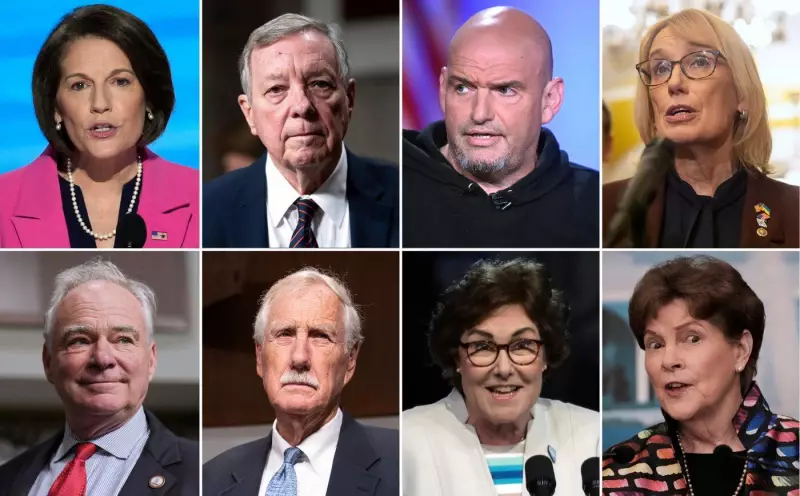
In a rare display of bipartisan cooperation, eight Democratic senators joined Republican colleagues to pass a deal ending the recent government shutdown, drawing both praise and criticism from within their own party.
The Crossing Party Lines
The senators who voted with Republicans represent a diverse group from across the United States, each facing scrutiny for their decision to break with party leadership. The group included Senator Catherine Cortez Masto of Nevada, Senate Judiciary Committee Chairman Dick Durbin of Illinois, and Senator John Fetterman of Pennsylvania.
Also among the eight were Senator Maggie Hassan of New Hampshire, Senator Tim Kaine of Virginia, Senator Angus King of Maine, Senator Jacky Rosen of Nevada, and Senator Jeanne Shaheen of New Hampshire. Senator King, while officially an independent, caucuses with Democrats.
Explaining the Controversial Vote
Each senator has faced questions about their decision to support the Republican-backed deal. The vote occurred on November 10, 2025, with the agreement passing despite significant opposition from within the Democratic caucus.
The senators have emphasized different reasons for their votes, though common themes emerged around ending the government shutdown's impact on federal workers and essential services. Some pointed to specific provisions in the deal that aligned with their states' interests, while others cited the need for compromise to resolve the political stalemate.
Political Fallout and Justifications
The decision has generated significant controversy within the Democratic party, with some progressive groups criticizing the senators for what they see as capitulation to Republican demands. However, the eight lawmakers have stood by their votes, arguing that sometimes governing requires difficult choices.
Several senators highlighted that their constituents were suffering from the effects of the shutdown and that continuing the standoff would only cause more harm to everyday Americans. The explanations offered by the senators reflect the challenging balance between party loyalty and representing their states' interests.
The political implications of this vote may extend beyond the immediate resolution of the government shutdown, potentially affecting future legislative negotiations and even primary challenges for some of the senators involved.





